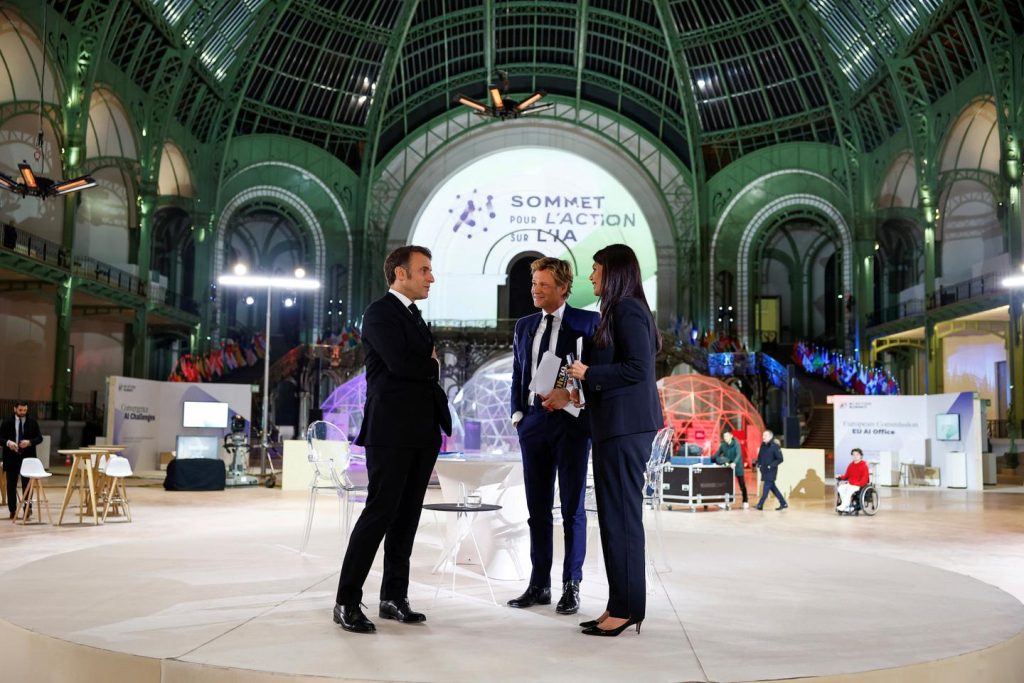France and Europe Aim to Lead the AI Revolution with €109 Billion Investment
French President Emmanuel Macron made a groundbreaking announcement on Sunday, February 9, unveiling a €109 billion investment plan in artificial intelligence (AI) from both French and foreign private sources over the coming years. Drawing a parallel to the United States’ ambitious "Stargate" initiative, Macron emphasized that this investment represents a critical step for France and Europe to assert their presence in the global AI race. The move comes as the world witnesses unprecedented advancements in AI, with the U.S. recently committing $500 billion to the "Stargate" project under former President Donald Trump’s leadership. For Macron, the stakes are clear: France and Europe must "accelerate" to avoid dependency on other nations and instead become pioneers in shaping the future of AI.
Macron’s announcement was made on the eve of the Action for Artificial Intelligence summit held at the Grand Palais in Paris, a gathering of global leaders, policymakers, and industry experts to discuss the challenges and opportunities AI presents. The summit underscored the urgency for France and the European Union to carve out a significant role in the AI landscape, currently dominated by the U.S. and China. Macron’s vision is not just about keeping pace with global giants but also about setting the standard for responsible AI development.
Preparing France for the AI Era: Strategic Initiatives and Investments
To support this ambitious goal, France has identified 35 strategic sites across the country to host data centers, the backbone of AI model training. One such project, backed by the Canadian Brookfield Fund, will invest €20 billion in a state-of-the-art data center in Cambrai, northern France. This infrastructure is crucial for advancing AI research and development.
In addition to physical infrastructure, Macron highlighted the importance of building human capital. He announced plans to train 100,000 young people annually in AI technologies, a significant increase from the current 40,000. This initiative aims to equip the next generation with the skills needed to drive France’s AI ambitions and ensure the nation remains competitive in the global tech economy.
AI’s potential to transform sectors like healthcare, energy, and education was also a focal point of Macron’s address. He emphasized its ability to revolutionize cancer treatment and streamline workplace tasks, though he cautioned against overestimating its role. "I am not one of those who think it will replace everything," Macron said, addressing concerns about job displacement and ethical challenges.
The Global AI Summit: A Call for Collaboration and Regulation
The Paris summit brought together over 100 countries, including major players like India, the U.S., China, and Germany, to discuss the global implications of AI. Prominent attendees included Indian Prime Minister Narendra Modi, U.S. Vice President JD Vance, Chinese Deputy Prime Minister Zhang Guoqing, and European Commission President Ursula von der Leyen. The event also drew top industry leaders, such as OpenAI’s Sam Altman and Arthur Mensch, founder of the French AI startup Mistral AI.
The summit’s primary objective was to foster international collaboration while addressing critical concerns such as regulation, ethics, and environmental impact. Macron pledged to conclude the summit with a declaration outlining strong principles for AI development, focusing on protecting rights, preserving information integrity, and safeguarding intellectual property. These measures aim to ensure that AI advancements align with democratic values and global aspirations.
Balancing Progress and Responsibility in the AI Revolution
As AI continues to reshape industries and societies, the need for regulation has become increasingly urgent. Private sector investments in AI have reached unprecedented levels, creating both opportunities and challenges. While the technology holds immense potential, issues such as job displacement, misinformation, and copyright violations loom large. Macron and other leaders at the summit emphasized the importance of balancing innovation with responsibility to ensure that AI benefits humanity as a whole.
France’s investment in AI reflects its broader strategy to remain a key player in the global tech landscape. By prioritizing education, infrastructure, and ethical guidelines, the nation aims to not only compete with the likes of the U.S. and China but also to set a standard for responsible AI development. As Macron put it, "France and Europe must be at the heart of this revolution… to push the principles that are ours."
The Road Ahead: France’s Vision for AI Leadership
Looking ahead, France’s AI strategy is not just about catching up but about leading. The nation’s focus on innovation and regulation positions it as a catalyst for change in the global AI ecosystem. By fostering collaboration with international partners and investing in its citizens, France is laying the groundwork for a future where AI drives progress without compromising on values.
The AI revolution is no longer on the horizon; it is here. With their ambitious investments and commitment to ethical leadership, France and Europe are ready to take their place at the forefront of this transformative era. The challenge now is to ensure that this revolution benefits all while safeguarding the principles that define our shared humanity.












